This article was co-authored by Corey Fish, MD. Dr. Corey Fish is a practicing Pediatrician and the Chief Medical Officer at Brave Care, a pediatric healthcare company based in Portland, Oregon. Dr. Fish has over 10 years of experience in pediatric care and is a member of the American Academy of Pediatrics. Dr. Fish received a BS in Biology from Pacific Lutheran University in 2005, an MD from the University of Washington School of Medicine in 2009, and completed his Pediatric Residency at the University of Texas Southwestern Medical School in 2012.
There are 20 references cited in this article, which can be found at the bottom of the page.
This article has been viewed 30,058 times.
Food allergies are more common in babies than adults, though food intolerances are more likely to strike your baby than allergies. To determine if your baby has a food allergy, you should watch for common symptoms. You should also pay particular attention to foods that are more likely to cause allergic reactions, such as shellfish, eggs, nuts, and milk. Finally, if you determine your baby does exhibit symptoms of an allergy, you need to talk to their pediatrician to develop a plan of action.
Steps
Watching for the Symptoms
-
1
-
2Look for hives. One symptom of a food allergy is a red skin rash, commonly known as hives. Usually, hives create welts on the skin.[4] The outer edges of the welts are red, while the centers are usually white or pink. You may notice the baby trying to scratch these areas, as they can be itchy. They can show up anywhere on the baby's skin.[5]
- Food allergies cause the body to release histamine, which in turn can cause hives.
Advertisement -
3
-
4Observe any swelling. Another common skin indicator of a food allergy is swelling skin. You may notice your baby's lips swelling, for instance. This symptom, in conjunction with other symptoms, likely indicates a food allergy. Also watch for symptoms like a swelling tongue.[8]
-
5Pay attention to vomiting. Another symptom of a food allergy is your child having stomach problems every time they eat a certain food. If your child vomits every time they have strawberries, for instance, that could indicate a food allergy or food intolerance.[9]
-
6Look for diarrhea. Like vomiting, diarrhea can be a sign that your baby is having stomach issues. In turn, that could mean your child has a food allergy to a particular food. Make sure to note what foods your baby ate if they have diarrhea, so you can determine what might be the cause.[10]
-
7Notice other signs of stomach problems. Other symptoms can indicate stomach issues, though they aren't as obviously stomach problems as diarrhea or vomiting. Both of these symptoms are serious symptoms of a food allergy.[11]
- Blood in the stool may also indicate a milk allergy.
-
8Check for breathing issues. A more serious allergy can cause problems with your baby's breathing. You may notice your baby is wheezing, for instance. Sneezing can also be a symptom of an allergy, as can other breathing problems.[12]
-
9Watch for general fussiness or irritability in infants. Infants can’t tell you about their symptoms, but they may act fussy or irritable as a result of their symptoms. If you notice that your infant is fussy or irritable and you can’t figure out why, then it may be due to allergy symptoms.
-
10Seek immediate medical help for other serious symptoms. There are other serious allergy symptoms that require immediate medical attention. For instance, you may notice your baby suddenly going pale, or they might lose consciousness.[13] If this happens, seek immediate medical help.
Paying Attention to Common Allergens
-
1Note an allergy to cow's milk. Up to 7% of infants have trouble digesting milk proteins. People of any age can have a milk allergy, but it's more common in infants.[14] About 2 to 3% of infants have a milk allergy, and up to 7% have some form of intolerance.[15] Generally, it's the proteins in the milk that the baby is allergic to, so pay attention to how your baby reacts to milk, particularly when you start feeding them formula.[16]
- Keep in mind that your baby having issues with formula could be due to something else besides an allergy or intolerance, such as not mixing up the formula in the right ratio. Feeding the baby too much or acid reflux can also cause issues.
-
2Watch for gluten sensitivities. Some babies have allergies to foods with gluten, such as foods with rye, wheat, and barley. If you're starting to feed your baby cereals, for instance, you may notice an intolerance due to gluten.[17]
-
3Pay attention to nuts. Another common category of food allergy is tree nuts and peanuts. Peanuts, in particular, are becoming a more common allergy. Nuts are incorporated into many foods, so it can be difficult to isolate this allergy, particularly if it's severe. Some babies may have a reaction even if their food just came in contact with a nut or peanut.[18]
-
4Look for egg and soy allergies. Eggs and soy are also common allergens that are in many foods. These foods may be harder to isolate, particularly soy, because of how common they are. However, reading labels can help you determine if one of these foods is what your baby is allergic to.[19]
-
5Watch out for shellfish and fish. Seafood is another common allergen. Fish such as salmon, tuna, and cod and shellfish such as shrimp, lobster, and crab can all cause an allergic reaction in your baby. Keep an eye out if you start feeding your baby these foods.[20]
Dealing with Food Allergies
-
1Call emergency services. If you notice your child is having trouble breathing or is losing consciousness or a sudden escalation of symptoms, call emergency services right away. Your baby's airway could close up, and if you try to drive them yourself to the emergency room, it may be too late.[21]
-
2Talk to the child's doctor. Your child's doctor can assess whether your child has an allergy or the root cause is something else. In addition, the doctor can help you come up with a course of action moving forward, so you can keep your child safe and healthy.[22]
- An allergist can perform a skin or blood test to determine what allergies your baby might have.
-
3Stay away from food allergens for the first 6 months. Before your baby turns 6 months of age, it's best to avoid the foods that commonly cause allergies in babies. When you do introduce these foods, try bringing them into the baby's diet one at a time, so you can see if any of them trigger a reaction.[23] [24]
-
4Eliminate foods. One way to help determine what is causing your baby issues is to start eliminating common culprits one by one from their diet. For instance, you might start by taking cow's milk out of your child's diet. If they're still having problems, try another common allergen, such as gluten. Keep eliminating foods until your baby stops showing symptoms, and you have your culprit.[25]
- You should only try food elimination under advice of a doctor.
- If you're breastfeeding, your doctor may suggest that you start eliminating foods from your diet.
- Once you figure out which food is causing the allergy, avoid the food. The main course of action for a food allergy is to eliminate the food from the baby's diet altogether. Your doctor can help you come up with alternatives for the food if it's something common, such as formula. When eliminating foods, keep in mind that you'll need to read labels carefully to check for the allergen.
-
5Try the food again in a few months (in some situations). If your child has a severe allergy, such as a peanut allergy, then it's probably not a great idea to try the food again. However, a mild intolerance, such as gassiness after eating a food, may disappear, as babies often lose their intolerances over time. With a mild intolerance, it's fairly safe to try the food again in a couple of months to see if your baby reacts to it, though you should always talk to the pediatrician first.[26] [27]
- Know the difference between an allergy and an intolerance. A food allergy affects the child's immune system, which is what makes it more severe. A food intolerance, on the other hand, only affects your baby's digestive system. Food allergies are not as common as food intolerances.
-
6Don't assume your baby isn't allergic to a certain food. You may feed your baby a food for weeks without any problems, and suddenly, they may start having symptoms related to that food. Just because you've fed your baby a food in the past doesn't mean they haven't developed an allergy to it more recently.[28]
-
7Ask your doctor about an epinephrine pen. If your baby is having severe reactions, your doctor may recommend that you keep epinephrine pens on hand in case your baby goes into anaphylaxis, a severe form of an allergic reaction. An epinephrine pen can help save your baby if they do have this reaction.[29]
- Anaphylaxis is characterized by severe allergic reaction symptoms, including trouble breathing, loss of consciousness, swelling of the tongue, vomiting, and becoming pale or limp.[30]
- Even if you use an epi pen, you still need to call emergency services if your child goes into anaphylaxis.
Expert Q&A
-
QuestionIf I'm allergic to something does that mean my baby will be allergic to it?
 Corey Fish, MDDr. Corey Fish is a practicing Pediatrician and the Chief Medical Officer at Brave Care, a pediatric healthcare company based in Portland, Oregon. Dr. Fish has over 10 years of experience in pediatric care and is a member of the American Academy of Pediatrics. Dr. Fish received a BS in Biology from Pacific Lutheran University in 2005, an MD from the University of Washington School of Medicine in 2009, and completed his Pediatric Residency at the University of Texas Southwestern Medical School in 2012.
Corey Fish, MDDr. Corey Fish is a practicing Pediatrician and the Chief Medical Officer at Brave Care, a pediatric healthcare company based in Portland, Oregon. Dr. Fish has over 10 years of experience in pediatric care and is a member of the American Academy of Pediatrics. Dr. Fish received a BS in Biology from Pacific Lutheran University in 2005, an MD from the University of Washington School of Medicine in 2009, and completed his Pediatric Residency at the University of Texas Southwestern Medical School in 2012.
Pediatrician & Chief Medical Officer, BraveCare Not necessarily, but there is an inherited component of allergies. For example, if a parent is egg allergic, it doesn't necessarily mean your kid is going to be egg allergic. But it does mean that the child is more likely to be allergic to something.
Not necessarily, but there is an inherited component of allergies. For example, if a parent is egg allergic, it doesn't necessarily mean your kid is going to be egg allergic. But it does mean that the child is more likely to be allergic to something. -
QuestionHow do you introduce allergen foods?
 Corey Fish, MDDr. Corey Fish is a practicing Pediatrician and the Chief Medical Officer at Brave Care, a pediatric healthcare company based in Portland, Oregon. Dr. Fish has over 10 years of experience in pediatric care and is a member of the American Academy of Pediatrics. Dr. Fish received a BS in Biology from Pacific Lutheran University in 2005, an MD from the University of Washington School of Medicine in 2009, and completed his Pediatric Residency at the University of Texas Southwestern Medical School in 2012.
Corey Fish, MDDr. Corey Fish is a practicing Pediatrician and the Chief Medical Officer at Brave Care, a pediatric healthcare company based in Portland, Oregon. Dr. Fish has over 10 years of experience in pediatric care and is a member of the American Academy of Pediatrics. Dr. Fish received a BS in Biology from Pacific Lutheran University in 2005, an MD from the University of Washington School of Medicine in 2009, and completed his Pediatric Residency at the University of Texas Southwestern Medical School in 2012.
Pediatrician & Chief Medical Officer, BraveCare Wait until the baby's at least 6 months old. Rub the food on the baby's skin and wait 20-30 minutes to watch for signs of hives/swelling. If it goes well, rub the food on the baby's lips and wait 20-30 minutes. That way, you can monitor for early signs of allergies.
Wait until the baby's at least 6 months old. Rub the food on the baby's skin and wait 20-30 minutes to watch for signs of hives/swelling. If it goes well, rub the food on the baby's lips and wait 20-30 minutes. That way, you can monitor for early signs of allergies.
References
- ↑ Corey Fish, MD. Pediatrician & Chief Medical Officer, BraveCare. Expert Interview. 17 March 2020.
- ↑ http://www.parents.com/baby/health/allergy/baby-food-allergies/?slideId=50265
- ↑ http://kidshealth.org/en/parents/milk-allergy.html
- ↑ Corey Fish, MD. Pediatrician & Chief Medical Officer, BraveCare. Expert Interview. 17 March 2020.
- ↑ https://www.seattlechildrens.org/conditions/a-z/food-allergy/
- ↑ https://www.healthychildren.org/English/ages-stages/baby/feeding-nutrition/Pages/Food-Allergy-Reactions.aspx
- ↑ http://acaai.org/allergies/who-has-allergies/children-allergies/eczema
- ↑ https://www.healthychildren.org/English/ages-stages/baby/feeding-nutrition/Pages/Food-Allergy-Reactions.aspx
- ↑ https://www.hopkinsmedicine.org/health/conditions-and-diseases/food-allergies-in-children
- ↑ https://www.jacionline.org/article/0021-8707(56)90102-2/fulltext
- ↑ https://www.healthychildren.org/English/ages-stages/baby/feeding-nutrition/Pages/Food-Allergy-Reactions.aspx
- ↑ https://www.healthychildren.org/English/ages-stages/baby/feeding-nutrition/Pages/Food-Allergy-Reactions.aspx
- ↑ https://www.healthychildren.org/English/ages-stages/baby/feeding-nutrition/Pages/Food-Allergy-Reactions.aspx
- ↑ https://www.nhs.uk/common-health-questions/childrens-health/what-should-i-do-if-i-think-my-baby-is-allergic-or-intolerant-to-cows-milk/
- ↑ https://pubmed.ncbi.nlm.nih.gov/12045418/
- ↑ https://health.clevelandclinic.org/infant-with-serious-tummy-troubles-understanding-milk-protein-allergy-and-intolerance/
- ↑ https://www.chop.edu/conditions-diseases/wheat-allergy
- ↑ https://www.rch.org.au/kidsinfo/fact_sheets/Peanut_and_tree_nut_allergy/
- ↑ https://www.healthychildren.org/English/ages-stages/baby/feeding-nutrition/Pages/Food-Allergy-Reactions.aspx
- ↑ https://www.healthychildren.org/English/ages-stages/baby/feeding-nutrition/Pages/Food-Allergy-Reactions.aspx
- ↑ https://my.clevelandclinic.org/health/diseases/8619-anaphylaxis
- ↑ http://www.nhs.uk/conditions/pregnancy-and-baby/pages/food-allergies-in-children.aspx
- ↑ Corey Fish, MD. Pediatrician & Chief Medical Officer, BraveCare. Expert Interview. 17 March 2020.
- ↑ http://www.nhs.uk/conditions/pregnancy-and-baby/pages/food-allergies-in-children.aspx
- ↑ https://kidshealth.org/en/parents/food-allergies.html
- ↑ https://wexnermedical.osu.edu/blog/how-to-know-youve-outgrown-a-food-allergy
- ↑ https://www.hopkinsmedicine.org/health/conditions-and-diseases/food-allergies-in-children
- ↑ https://www.eatright.org/health/allergies-and-intolerances/food-intolerances-and-sensitivities/are-food-sensitivity-tests-accurate
- ↑ http://kidshealth.org/en/parents/milk-allergy.html
- ↑ https://my.clevelandclinic.org/health/diseases/8619-anaphylaxis


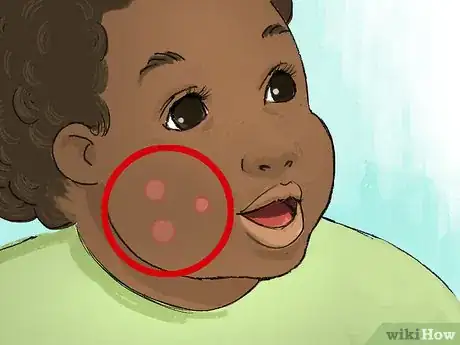
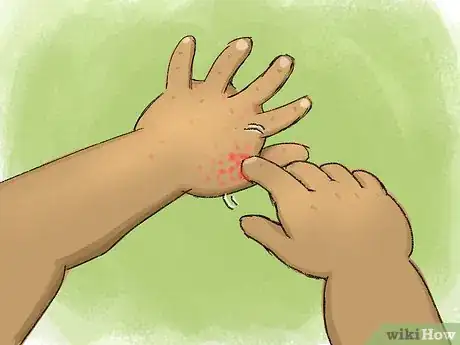
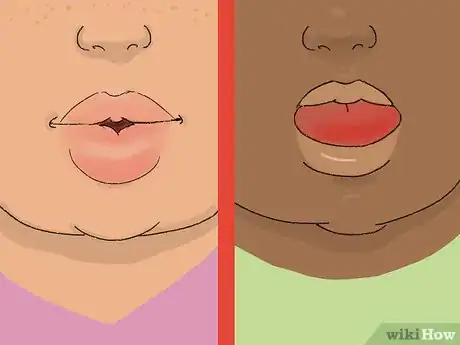

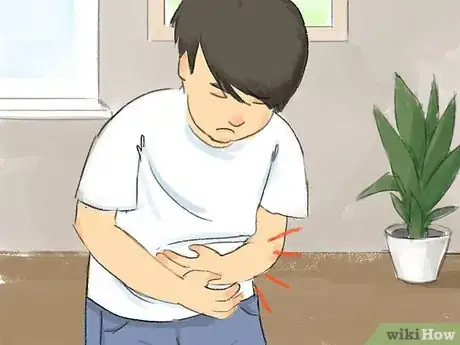


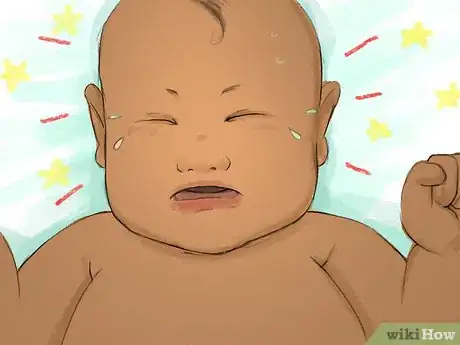


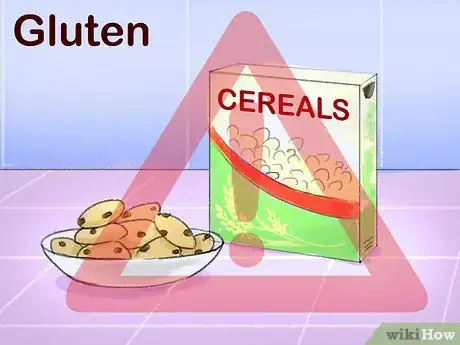
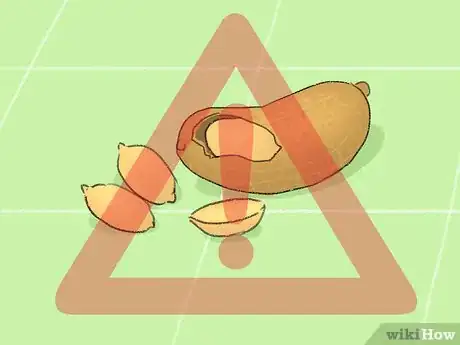
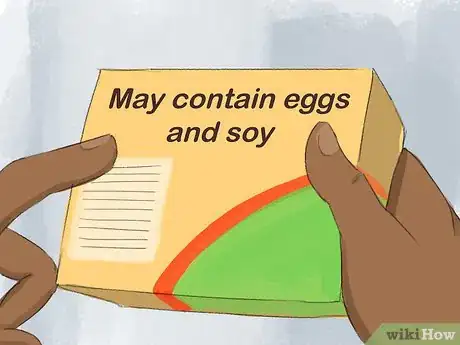
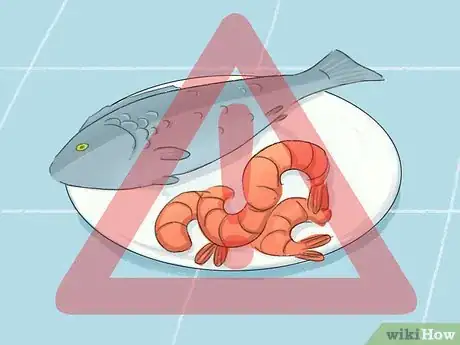


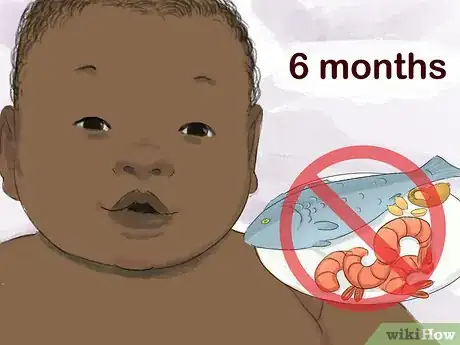
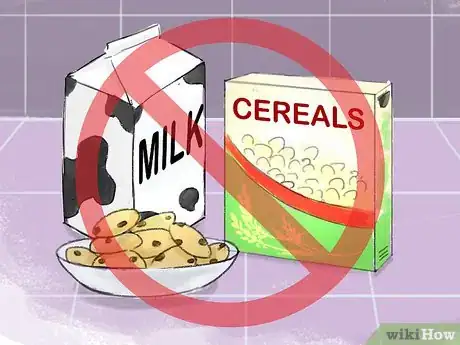
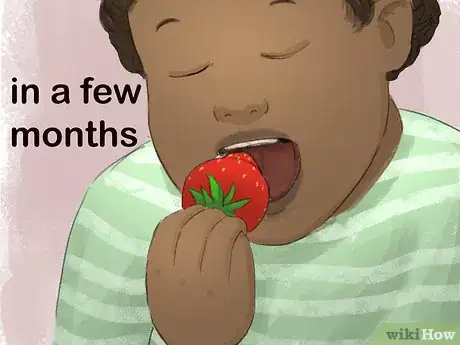
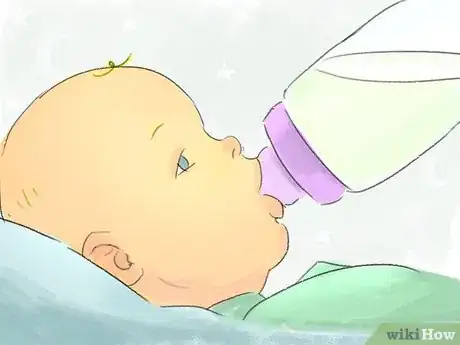









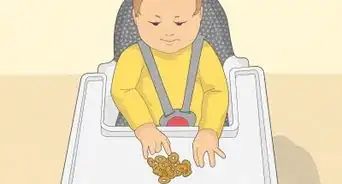
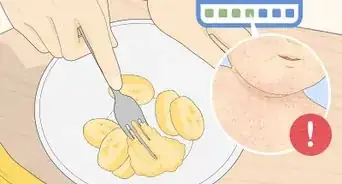
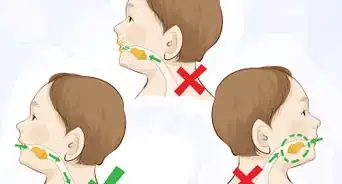








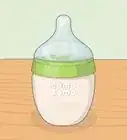




































Medical Disclaimer
The content of this article is not intended to be a substitute for professional medical advice, examination, diagnosis, or treatment. You should always contact your doctor or other qualified healthcare professional before starting, changing, or stopping any kind of health treatment.
Read More...